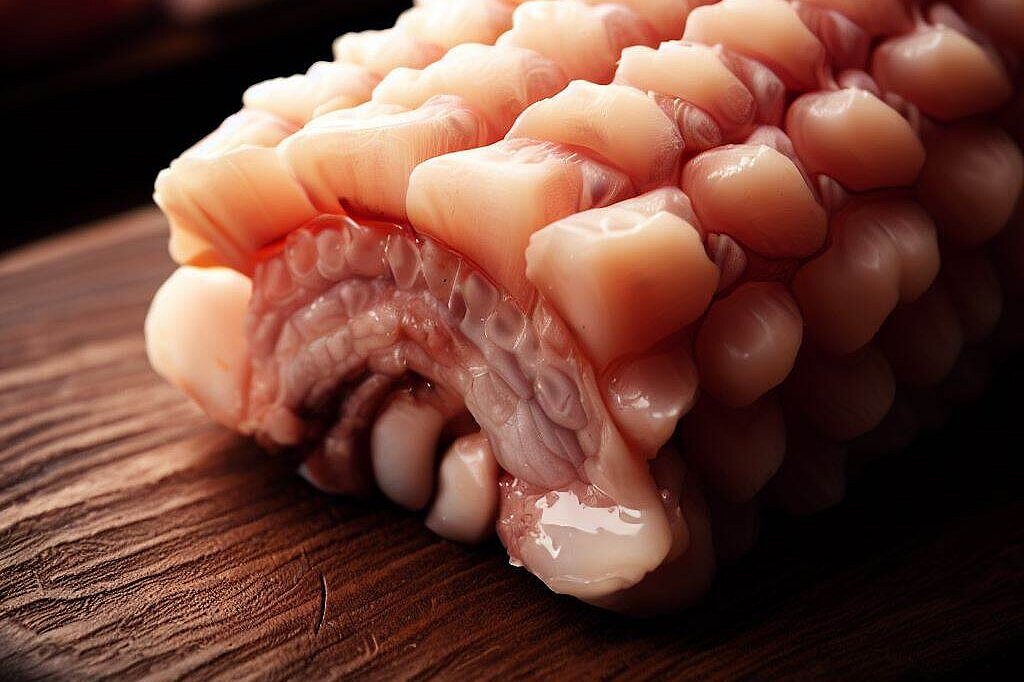Glucosamine from fermentation

Glucosamine is an important building block for the formation and maintenance of cartilage tissue, which protects and lubricates dogs' joints. Glucosamine is naturally produced in the body, but with age, production can decrease and lead to joint problems such as osteoarthritis. Glucosamine can therefore be administered as a dietary supplement to support cartilage health and reduce inflammation and pain.
What is glucosamine
There are various sources of glucosamine available as a dietary supplement for dogs. One of these is glucosamine, which is obtained by fermentation from plant-based raw materials such as corn. This glucosamine has the advantage that it is vegan and contains no animal ingredients such as seafood or shellfish, which can cause allergies. In addition, glucosamine from fermentation has the same molecular structure as glucosamine from animal sources and is therefore just as bioavailable and effective.
How is fermented glucosamine produced?
Glucosamine from fermentation is produced by a biotechnological process in which corn starch is converted into glucose with the help of microorganisms. This glucose is then fermented with another microorganism that produces glucosamine. The glucosamine is then purified, dried and processed into powder or capsules.
What are the benefits of fermented glucosamine for dogs?
Glucosamine from fermentation has several health benefits for dogs:
- It supports the formation and repair of cartilage tissue, which cushions joints and protects them from wear and tear.
- It promotes the production of synovial fluid, which lubricates the joints and keeps them flexible.
- It inhibits the release of inflammatory messengers that can lead to swelling, redness and pain in the joints.
- It alleviates the symptoms of osteoarthritis, a degenerative joint disease that often occurs in older dogs.
- It improves the quality of life and mobility of dogs with joint problems.
What are the disadvantages of fermented glucosamine for dogs?
Glucosamine from fermentation is generally well tolerated and safe for dogs. However, it can also have some disadvantages:
- It may interact with certain medications such as blood thinners or antidiabetics. Therefore, a veterinarian should be consulted before administering glucosamine.
- It can cause side effects such as diarrhea, flatulence or vomiting, especially at high doses or in sensitive dogs. The dosage should therefore be increased slowly and the dog's reaction observed.
- It may cause allergic reactions if the dog is sensitive to corn or other ingredients of the product. Therefore, the product should be discontinued immediately if signs of allergy occur.
- It can be more expensive than other sources of glucosamine as the manufacturing process is more complex.
How is fermentatively produced glucosamine for dogs dosed?
The dosage of fermented glucosamine depends on the weight of the dog. A general recommendation is
- Dogs up to 10 kg: 250 mg per day
- Dogsbetween 10 and 20 kg: 500 mg per day
Fermentatively produced glucosamine is a food supplement for dogs that is obtained from plant-based raw materials such as maize. It is vegan and free from animal ingredients, which can prevent allergies. This glucosamine has the same bioavailable molecular structure as glucosamine from animal sources. It supports joint health in dogs by promoting cartilage formation and repair, producing synovial fluid and reducing inflammation. It can be well tolerated in dogs, but can interact with medications and occasionally cause side effects. The dosage depends on the dog's weight, with a typical recommendation being 250 mg per day for dogs up to 10 kg and 500 mg per day for dogs between 10 and 20 kg.
If you notice any signs of hypersensitivity or poisoning in your dog, you should see your vet immediately. We are not a substitute for a vet, but we try to be as accurate as possible. Every dog reacts differently and we recommend you get a second opinion or consult your vet if in doubt.
Stay healthy and take good care of your four-legged friend!😊
Similar to Glucosamine from fermentation
Chondroitin is a so-called glycosaminoglycan, which consists of sugar molecules that bind to proteins. These compounds form large molecules called proteoglycans. Proteoglycans are important building...
Hyaluron has various positive effects for your dog. Firstly, it supports skin health and can help with dry, flaky or inflamed skin. Hyaluron moisturizes and promotes wound healing. It can also make...
The exact amount of vitamin B12 a dog needs depends on various factors, such as the dog's age, size, breed and state of health. A general recommendation is that an adult dog needs about 20...
Ubiquinone-10 is a fat-soluble, vitamin-like molecule found in the mitochondria, the energy powerhouses of our cells. It plays a crucial role in electron transport and thus helps in the production...



